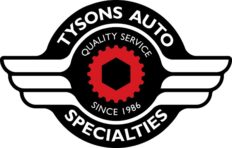It’s Fall Car Care Month: Is Your Car Trying to Tell You Something?
While talking cars only appear in the movies, your vehicle can still communicate using its own language. Sounds like squealing, thumping, hissing and grinding are all signs that your vehicle may be trying to tell you something, says the Car Care Council.
“It’s important for car owners to listen and act accordingly when their vehicle speaks up,” said Rich White, executive director, Car Care Council. “By checking out what your vehicle is saying, you can take care of the problem now and avoid a breakdown or more costly repairs later.”
Many motorists are familiar with noises their vehicles make on a daily basis. However, any noise that is new, different or suspicious may indicate a problem. For example, a high-pitched squeal that stops when pressing on the brake pedal is a sign that a vehicle’s brakes should be inspected. The same goes for grinding that could be the result of worn brake pads that should be replaced.
While talking cars only appear in the movies, your vehicle can still communicate using its own language. Sounds like squealing, thumping, hissing and grinding are all signs that your vehicle may be trying to tell you something, says the Car Care Council.
“It’s important for car owners to listen and act accordingly when their vehicle speaks up,” said Rich White, executive director, Car Care Council. “By checking out what your vehicle is saying, you can take care of the problem now and avoid a breakdown or more costly repairs later.”
Many motorists are familiar with noises their vehicles make on a daily basis. However, any noise that is new, different or suspicious may indicate a problem. For example, a high-pitched squeal that stops when pressing on the brake pedal is a sign that a vehicle’s brakes should be inspected. The same goes for grinding that could be the result of worn brake pads that should be replaced.
Thumping that increases and decreases with the speed of the vehicle could mean a trip to your local service center. The diagnosis may be a tire problem like a bubble in the sidewall or torn rubber that could lead to a blowout.
Sounds under the hood can also indicate that your vehicle is in need of attention. Hissing may be caused by a disconnected or cracked vacuum hose. A squealing noise while revving the engine could be due to a slipping drive belt. Inspection and repair will allow your vehicle to operate more safely and efficiently.
“The number of sounds a vehicle may make are endless, so when your car is trying to tell you something, it’s important to be alert, listen carefully and take action,” said White.
The Car Care Council is the source of information for the “Be Car Care Aware” consumer education campaign promoting the benefits of regular vehicle care, maintenance and repair to consumers.
This Car Care tip is courtesy of the Car Care Council.
